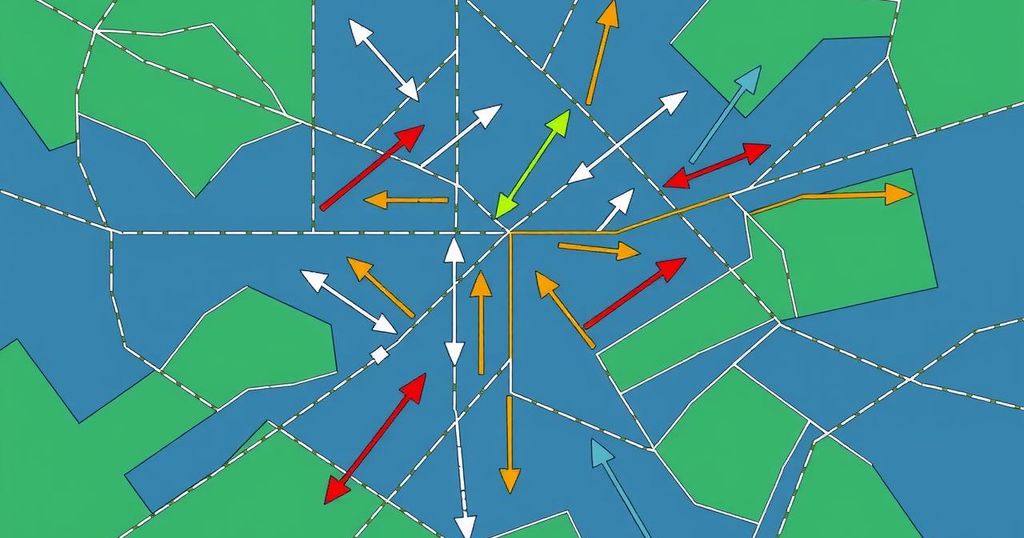Elections
Politics
2024 PRESIDENTIAL ELECTION, ASIA, CURRENT_AFFAIRS, HEGSETH, HOUSE, INDO - PACIFIC, JOINT CHIEFS OF STAFF, KAROLINE LEAVITT, MIKE WALTZ, NATIONAL INTELLIGENCE, NATIONAL SECURITY, NORTH AMERICA, PETE HEGSETH, POLITICS, TRUMP ADMINISTRATION, TULSI GABBARD, U. S, UNITED STATES, WHITE HOUSE, YEMEN
Dante Raeburn
The Atlantic Discloses Hegseth’s Signal Chat Detailing Military Plans
The Atlantic revealed a Signal chat among national security officials detailing Defense Secretary Pete Hegseth’s specific military strike plans against Yemen’s Houthis, raising concerns about the security of sensitive information and the exclusion of military leadership from discussions.
On Wednesday, The Atlantic unveiled an entire Signal chat among senior national security officials, highlighting Defense Secretary Pete Hegseth’s specific plans regarding military actions against Yemen’s Houthis. This revelation included precise timing for warplane launches and bomb deployments, made public before the operations commenced. Following this disclosure, officials from President Donald Trump’s intelligence and defense bodies faced scrutiny over how classified details found their way onto an unclassified chat platform.
In an important note, the chat excluded key military leadership, particularly Adm. Christopher Grady, the acting chairman of the Joint Chiefs of Staff, who was not present for the discussions. National security adviser Mike Waltz was alleged to have the discretion to include or exclude military personnel based on various factors, which led to questions regarding the decision to omit Grady from conversations related to military strikes.
While Hegseth has refrained from confirming whether classified information was shared on Signal, he has downplayed inquiries regarding his posts. Both the Director of National Intelligence, Tulsi Gabbard, and CIA Director John Ratcliffe indicated that Hegseth alone bore the responsibility of assessing the confidentiality of the information he communicated.
The contents of the chat were notably detailed, providing operational insights that typically remain confidential to ensure military security. Hegseth’s messages outlined the timeline and precision of the pending military operation while emphasizing the U.S.’s operational security status. He conveyed from the chat, “Godspeed to our Warriors,” and provided specific timings for aircraft launches and strike preparations.
Despite Signal’s reputation as an encrypted communication app, its susceptibility to hacking remains a concern. The Defense Department had warned personnel about the vulnerabilities of Signal and the potential for Russian attempts to intercept communications. The risks highlight uncertainties about the app’s use for classified discussions.
Adding to the complexities, White House press secretary Karoline Leavitt, among other Trump administration officials, is currently involved in a lawsuit from The Associated Press, which alleges that the administration attempts to curb independent journalism.
The disclosure of detailed military plans by Defense Secretary Pete Hegseth in a Signal chat raises significant concerns regarding operational security and the classification of sensitive information. The absence of key military officials from this discussion adds to the intrigue, as does the inherent vulnerability of the Signal app used for such communications. The ongoing legal battles between the Trump administration and media organizations further complicate the situation, underscoring tensions between governmental transparency and national security.
Original Source: apnews.com








Post Comment